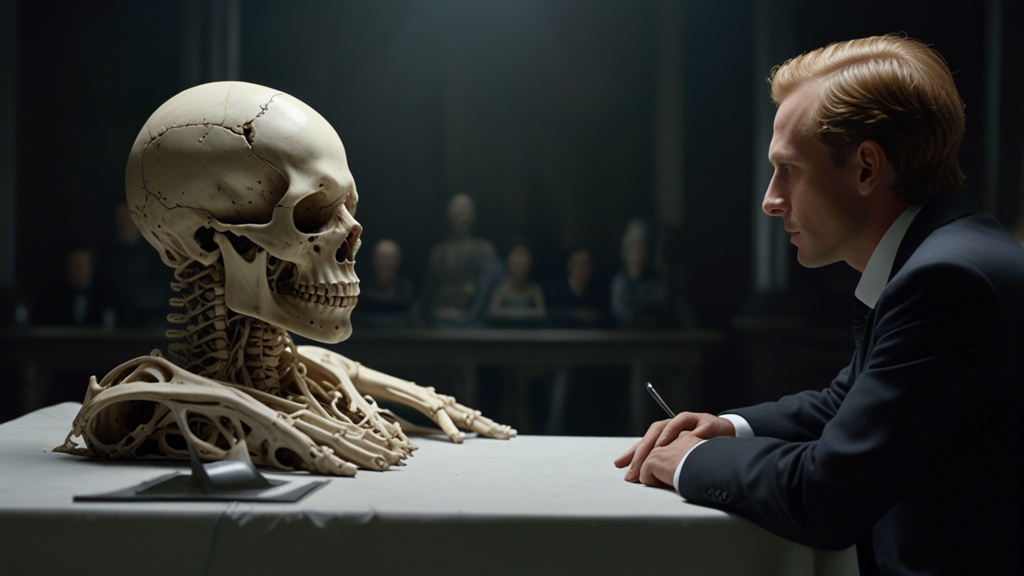The Great Debate: Is there Life After Death?
The question of whether there is life after death has puzzled humanity for centuries. Philosophers, theologians, scientists, and laypeople alike have offered various perspectives and theories. Some claim to have evidence of an afterlife, while others staunchly believe that death is the end. This article delves into the great debate, exploring various viewpoints and the implications of believing—or not believing—in life after death.
The Religious Perspective
Most world religions offer some concept of an afterlife. For instance, Christianity speaks of heaven and hell, Hinduism discusses reincarnation and eternal cycles, and Islam describes a paradise awaiting the faithful. These beliefs often provide comfort to adherents, giving life meaning and an ethical framework to follow.
"To live on in hearts we leave behind is not to die." - Thomas Campbell
Religious teachings about the afterlife inspire trust and hope in many individuals. The promise of eternal life can be a potent motivator for ethical behavior and a source of solace in times of loss.
The Skeptical View
Contrastingly, skeptics and empirical scientists often argue that no concrete evidence exists to support the notion of an afterlife. They suggest that consciousness is a byproduct of brain activity, and once brain function ceases, so does consciousness. Many in the scientific community advocate for a rational approach to understanding human existence, emphasizing observable and measurable phenomena.
"We are made of star stuff. We are a way for the cosmos to know itself." - Carl Sagan
Skeptics argue that anecdotes of near-death experiences or ghost sightings can usually be explained by psychological or physiological factors. They caution against believing in unproven ideas, suggesting such beliefs might detract from appreciating the here and now.
Philosophical Considerations
Philosophers have long debated the nature of the mind and whether it can exist independently of the body. Dualists, such as René Descartes, argue that the mind and body are separate entities, potentially allowing for the mind's survival after death. Meanwhile, materialists believe that consciousness arises from the physical brain and ceases when bodily functions end.
Contemporary philosophers like David Chalmers explore the "hard problem" of consciousness, delving into why and how subjective experience arises. These discussions often touch upon whether these experiences could persist beyond death, but no definitive answers have emerged.
Modern Scientific Inquiry
Some fields of modern science are attempting to tackle these existential questions. Neurobiology seeks to understand the intricacies of the human brain and consciousness, while quantum physics explores the fundamental nature of reality. However, these inquiries often raise more questions than answers.
Studies on near-death experiences (NDEs) provide intriguing, albeit controversial, data. Some individuals report profound experiences that they interpret as glimpses of an afterlife. Researchers like Dr. Raymond Moody have documented these accounts, though they have yet to be universally accepted by the scientific community.
"The important thing is not to stop questioning. Curiosity has its own reason for existing." - Albert Einstein
Another fascinating area of research is the concept of biocentrism, proposed by Dr. Robert Lanza. This theory suggests that life and consciousness are fundamental aspects of the universe, proposing that consciousness might exist beyond the confines of the physical body.
Conclusion
The debate over whether there is life after death remains unresolved and likely will for the foreseeable future. The diversity of perspectives—from religious beliefs and philosophical arguments to scientific investigations—demonstrates humans' enduring curiosity and quest for understanding. Whether one leans toward belief in an afterlife or subscribes to a more empirical worldview, the discussion itself enriches our understanding of what it means to be human.
Regardless of where one stands, contemplating life after death pushes us to examine our existence, our choices, and the legacies we leave behind. It is perhaps this very inquiry, more than any definitive answer, that connects us in our shared human experience.








